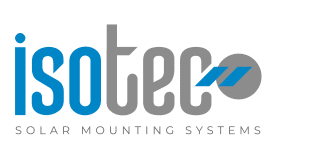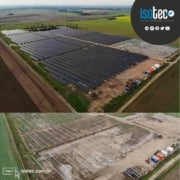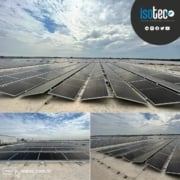Why Do Solar Panels Lose EFFICIENCY?
1. PHYSICAL DAMAGE TO SOLAR PANELS
Over time, solar panels can become damaged due to various external factors. PHYSICAL DAMAGES can take. RAIN, SNOW, WIND AND EXTREME TEMPERATURES, on the surface of the panels CRACKS or TO BREAKS This may cause the panel to IT CAN SERIOUSLY AFFECT YOUR PRODUCTIVITY.
Solution:
By checking the panels regularly PHYSICAL DAMAGES can detect early and necessary REPAIR or PANEL REPLACEMENTYou can also provide: THE QUALITY OF SOLAR PANELS By paying attention, you can choose more durable and sturdy models.
2. SHADING AND OBSTACLES
SHADINGis an important factor that directly affects the efficiency of solar panels. TREES, BUILDINGS or OTHER STRUCTURES, can block sunlight from reaching the panels. This can cause the panel to VERİMLİLİĞİNİ %20-30 ORANINDA may decrease.
Solution:
When placing your panels TAKE CARE TO STAY AWAY FROM SHADING AREAS. Moreover, TREES THAT CAN GROW OVER TIME IN THE AREA WHERE YOU PLACE YOUR PANELS If there are any trees, you can cut or relocate them.
3. POLLUTION AND SURFACE DIRT
Solar panels, depending on outdoor conditions DUST, DIRT, LEAVES It can be affected by factors such as dirt on the panel, sunlight IT MAY PREVENT IT FROM REACHING THE PANEL SURFACE, which leads to loss of efficiency.
Solution:
CLEAN THE PANELS REGULARLY, is the most effective way to increase efficiency. Panels that are free of dirt and dust will receive more sunlight and produce more energy. For cleaning SOFT CLOTH and WATERis the most appropriate method to use.
4. THERMAL EFFICIENCY PROBLEMS
Solar panels HOT AIR conditions, as the surface warms EFFICIENCY MAY DECREASE. HIGH TEMPERATURES, negatively affects the electricity generation capacity of solar panels. This is especially HOT CLIMATE REGIONSIt is a more common problem in .
Solution:
Your solar panels COOLING SYSTEMS Check regularly. Also, make sure that the panels are IN A COOLER ENVIRONMENT in order to work VENTILATION AREA To reduce the temperature increase of the panel surface TREES or OTHER PLANTS It may also be useful to provide natural shading with .
5. DECREASING EFFICIENCY OVER TIME (DEGRADATION)
Solar panels are getting bigger every year PRODUCTIVITY LOSS MAY EXPERIENCEThis loss is usually very small, but ANNUAL %0.5-1 A loss of around 100,000 panels is expected. AGING, may result in lower performance.
Solution:
To prevent this situation HIGH QUALITY PANELS You can choose. High efficiency panels have a longer lifespan and minimize annual efficiency loss. In addition, PANEL MONITORING SYSTEMS You can detect performance degradation early and intervene.
6. ELECTRICAL CONNECTION PROBLEMS
Between solar panels ELECTRICAL CONNECTIONS can become loose or damaged over time. This can cause the system MAY AFFECT TOTAL PRODUCTIVITY. Moreover, OVERHEATING OF CABLES may also cause loss of performance.
Solution:
After installing your solar panel system, HAVE ELECTRICAL CONNECTIONS CHECKED REGULARLY is important. TECHNICAL MAINTENANCE With you can test the integrity of the cables and detect possible connection problems.
7. INSUFFICIENT SYSTEM SIZE
In some cases, your solar panel system IT MAY BE SMALLER THAN YOU NEED. This, PANELS DO NOT PRODUCE ENOUGH ENERGY and may cause you to lose efficiency. Also, during installation, As a result of INSUFFICIENT NUMBER OF PANELS may prevent you from using sunlight to its full potential.
Solution:
Before installing the system CALCULATE YOUR ENERGY NEEDS CORRECTLY It is necessary. Because it suits your needs. WITH SOLAR PANEL CAPACITY Choosing a system will increase your efficiency. Also, ADVANCED MONITORING SYSTEMS You can continuously monitor the performance of the system with .
Reduce Productivity Loss and SAVE
Although it is a natural process for solar panels to lose efficiency, CORRECT MAINTENANCE, QUALITY PANEL SELECTION AND PROPER INSTALLATION can be minimized with. Regularly checking, cleaning and maintaining your panels, HIGH EFFICIENCY will help you achieve. LOSS OF PRODUCTIVITY By intervening early when you experience it, IT CAN SAVE ENERGY as well as YOU CAN EXTEND THE LIFE OF YOUR SOLAR SYSTEM.






